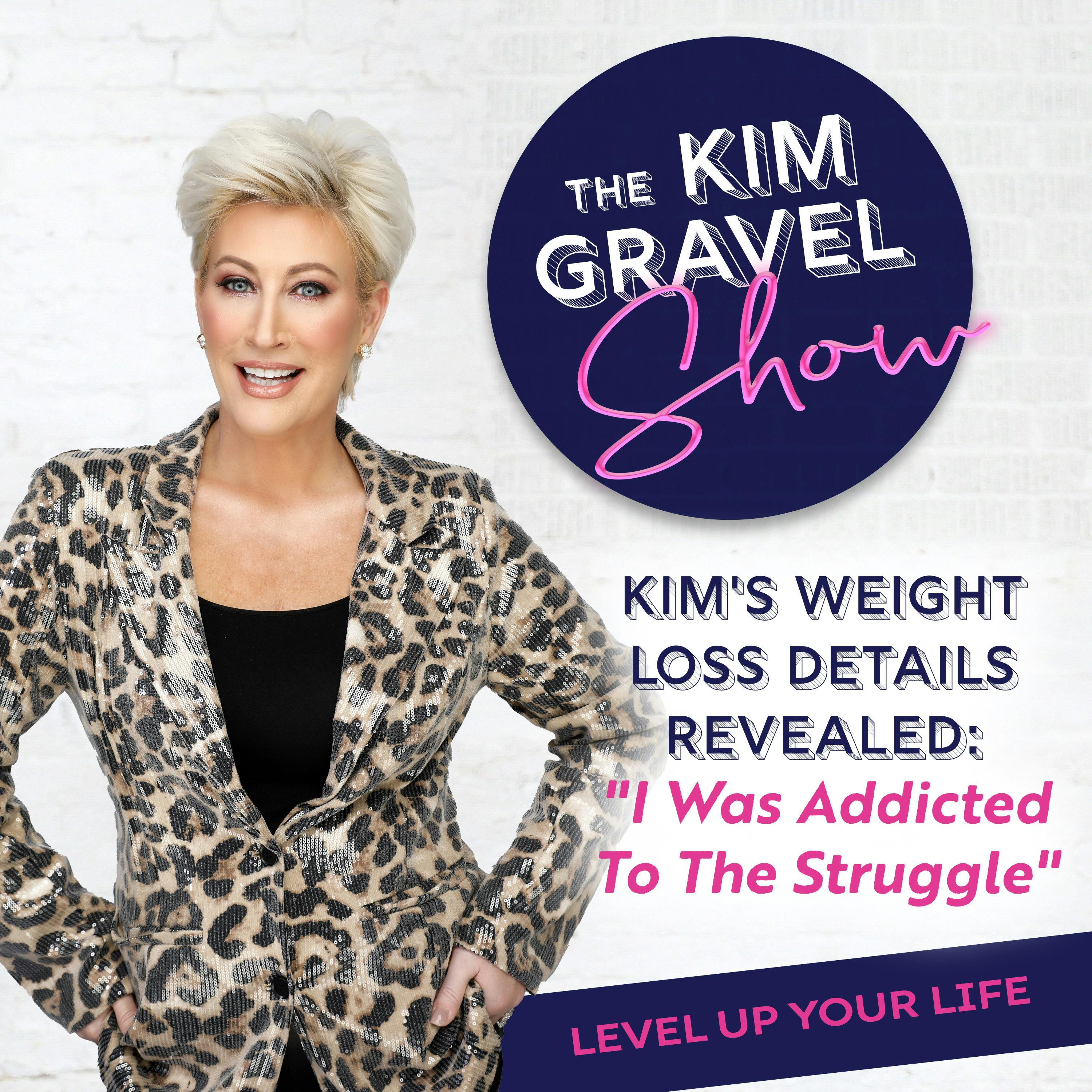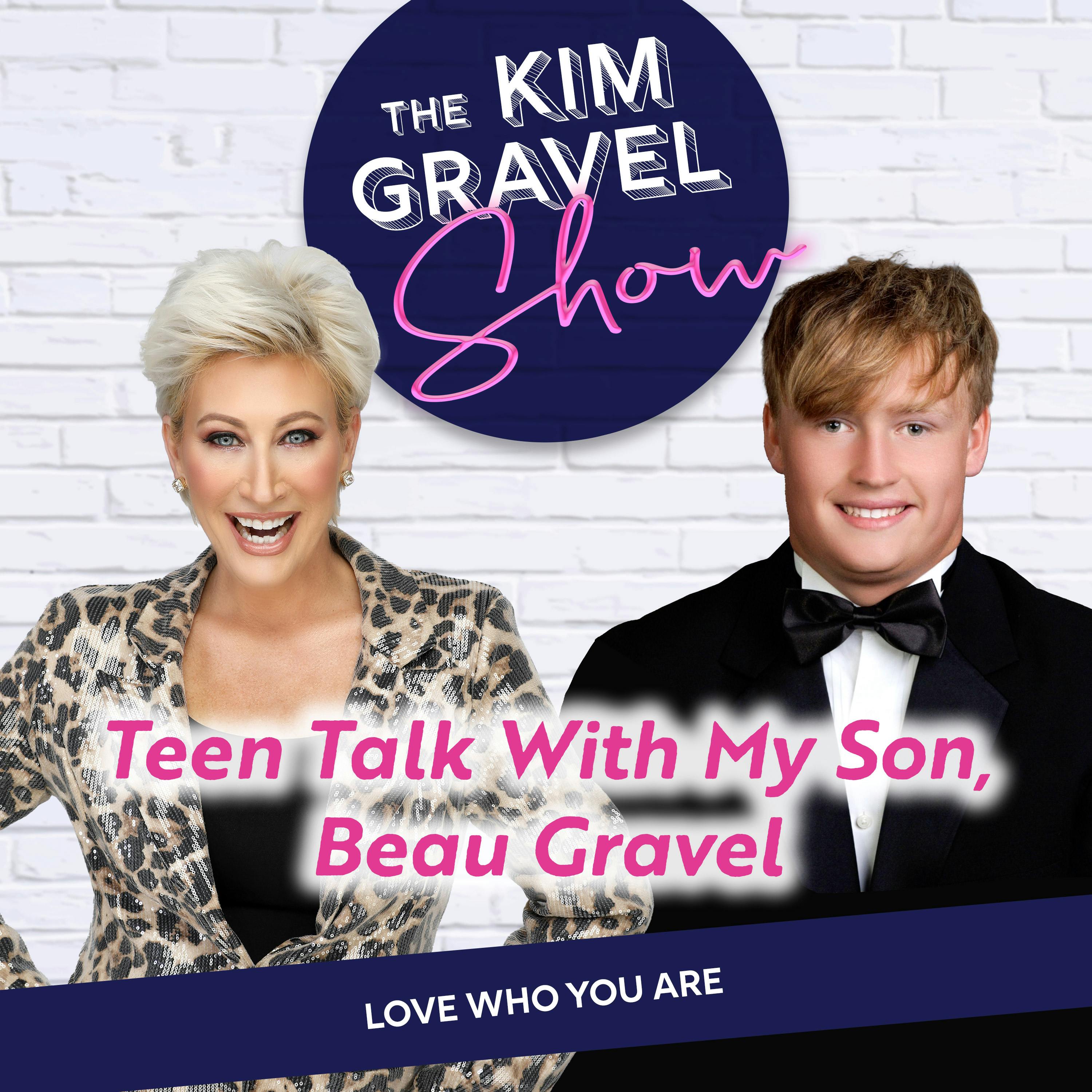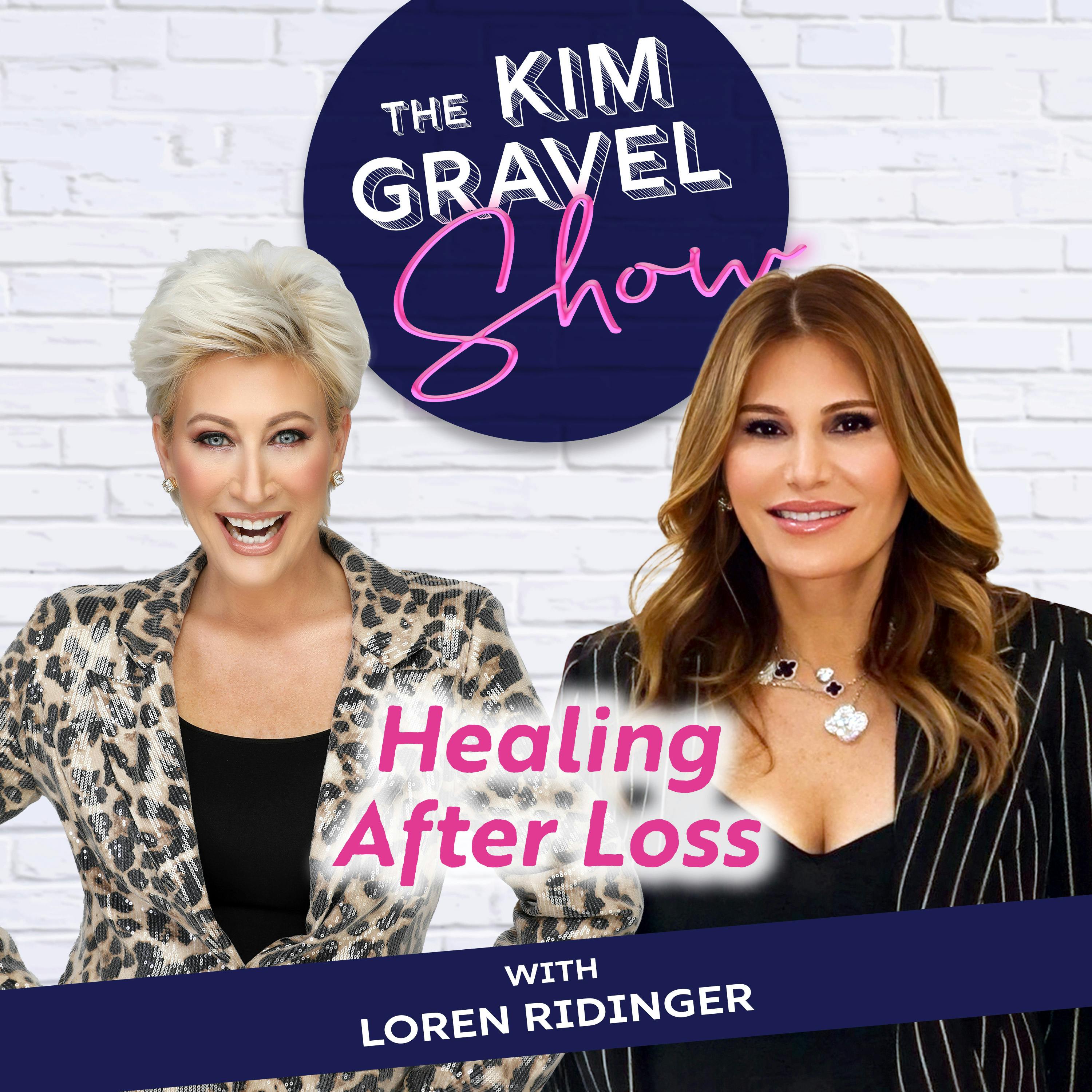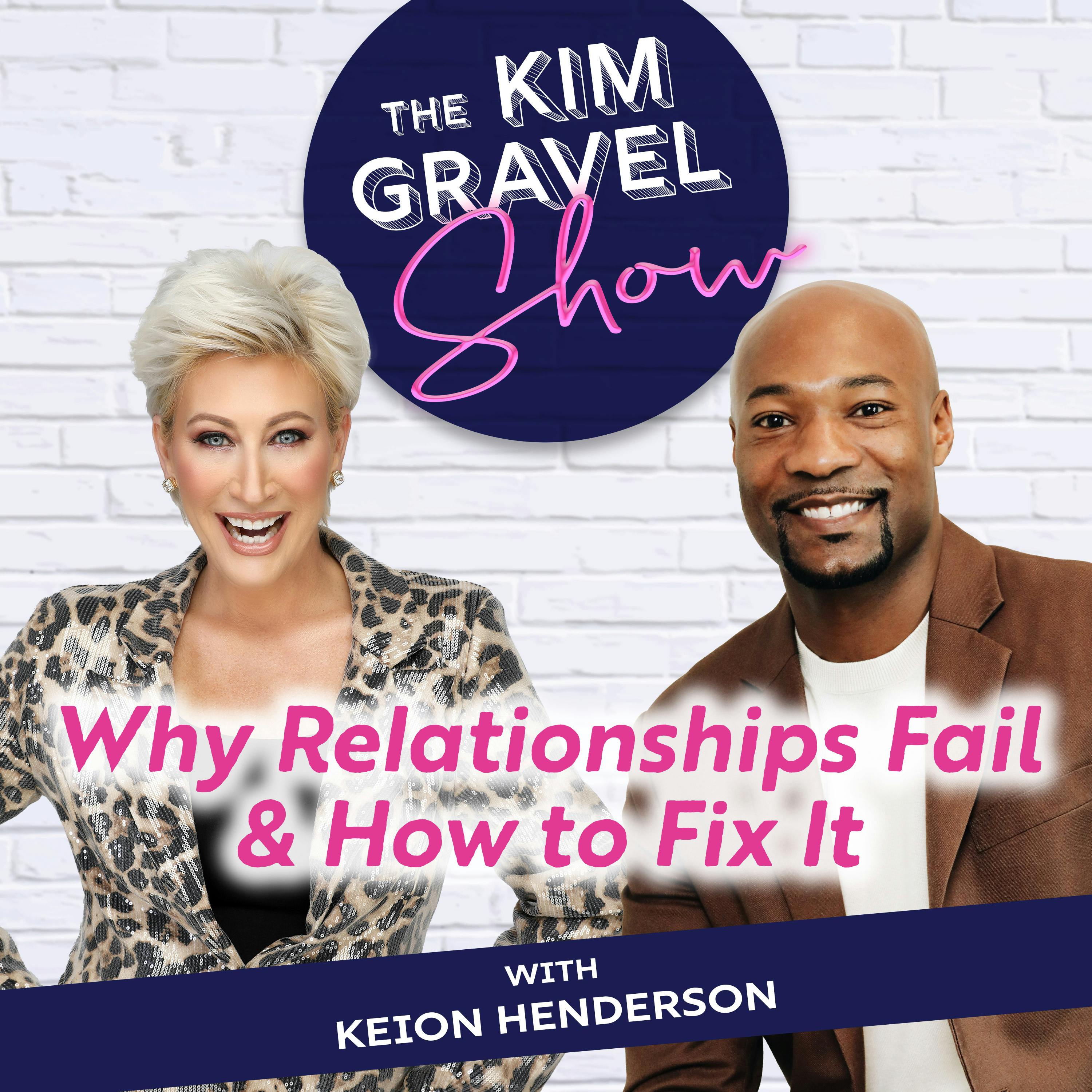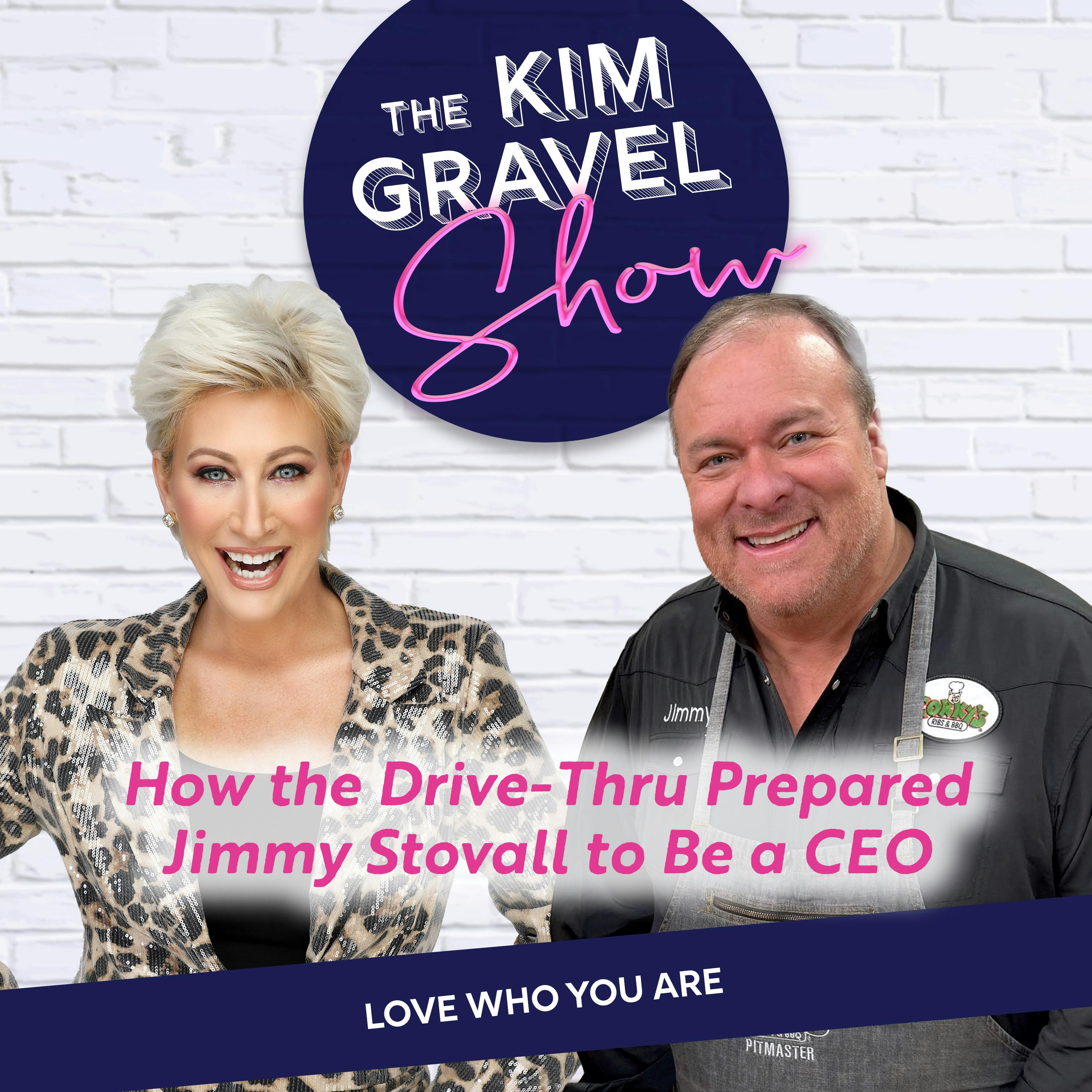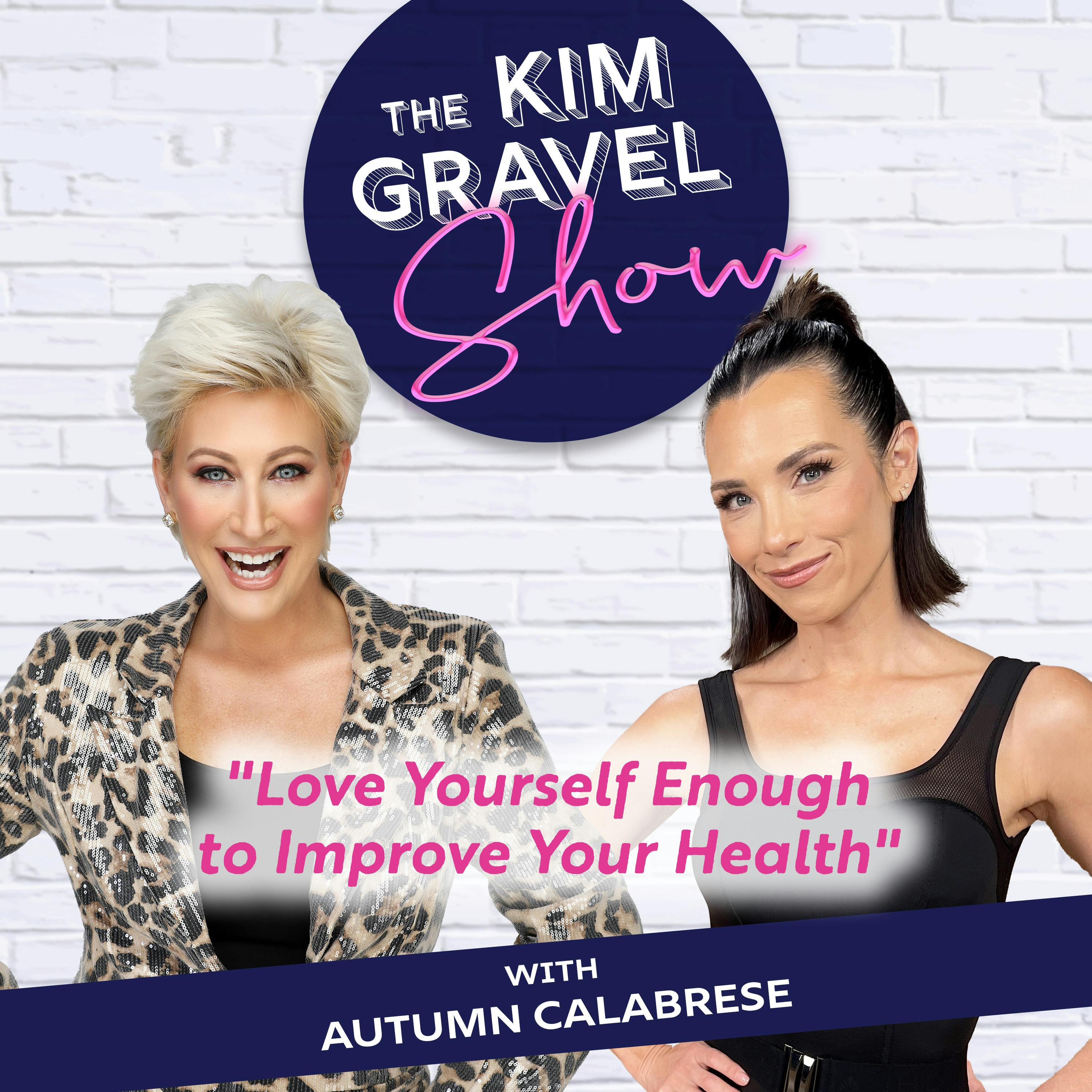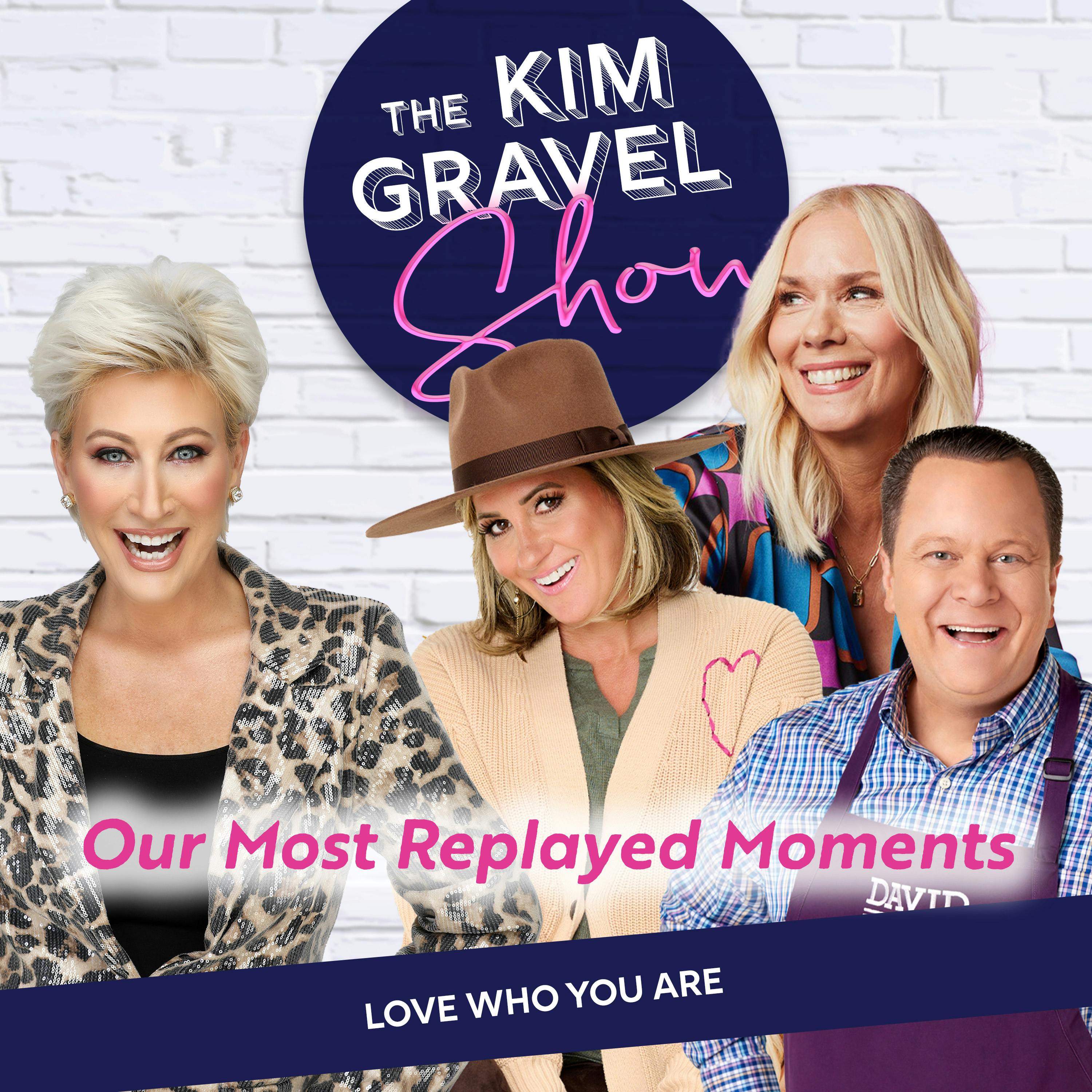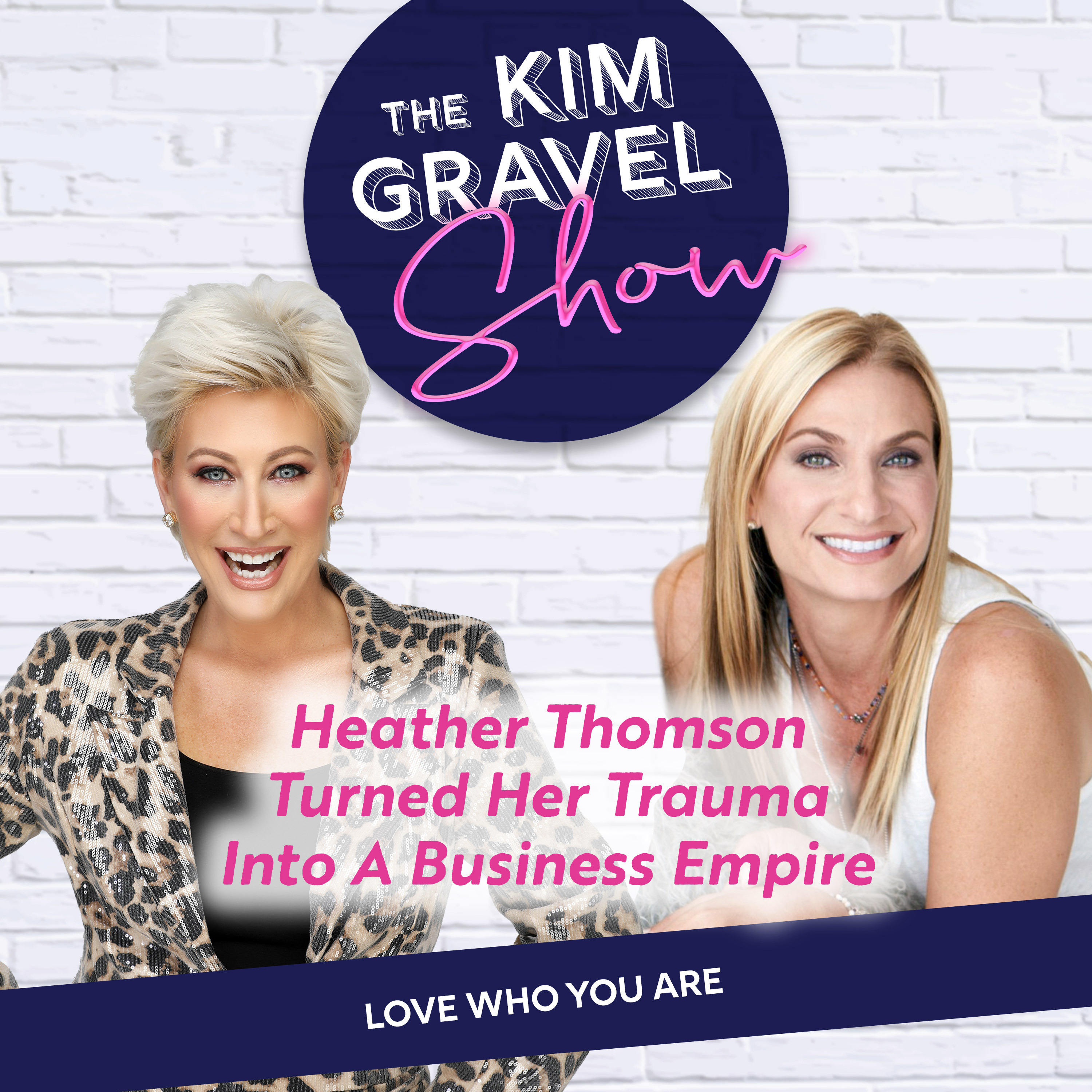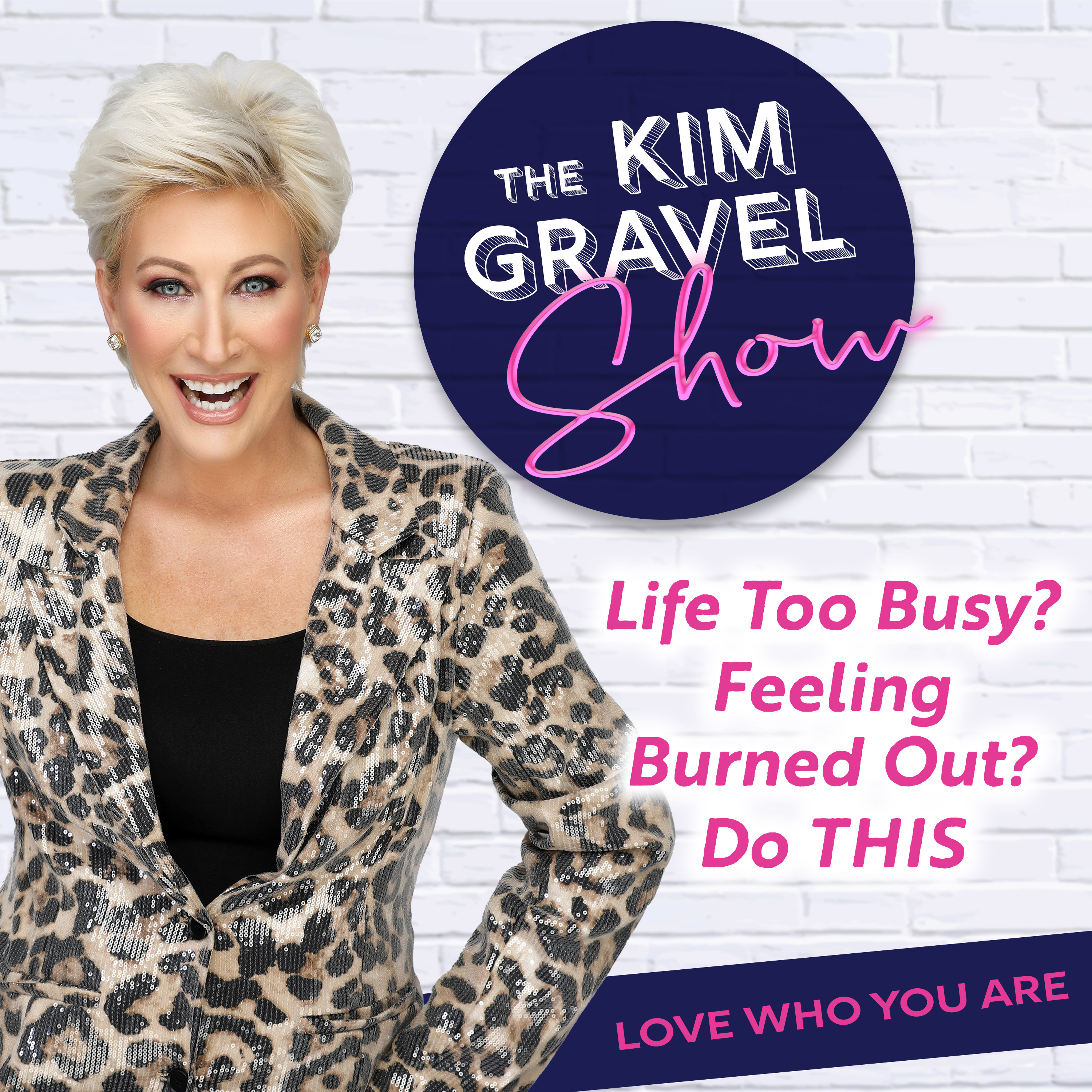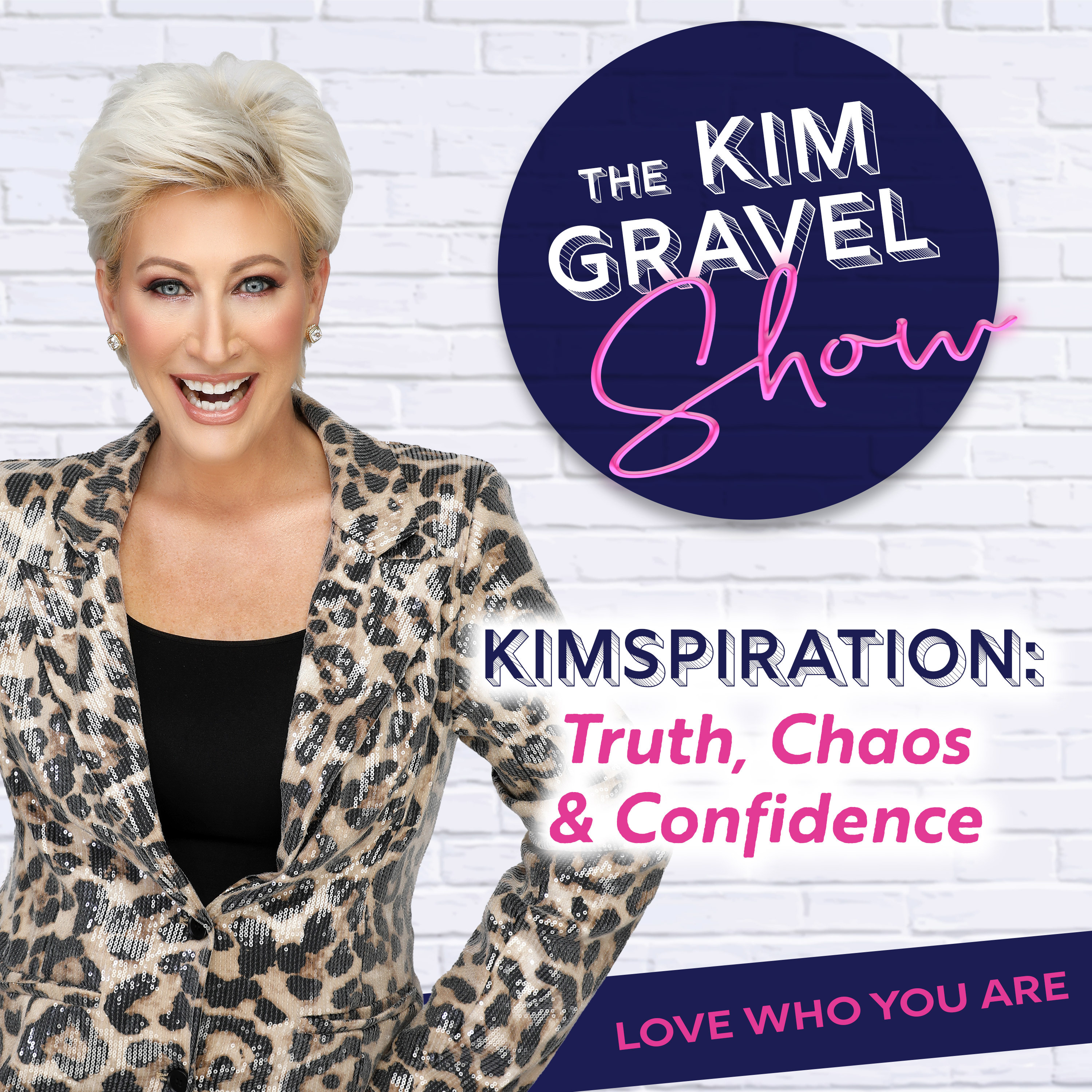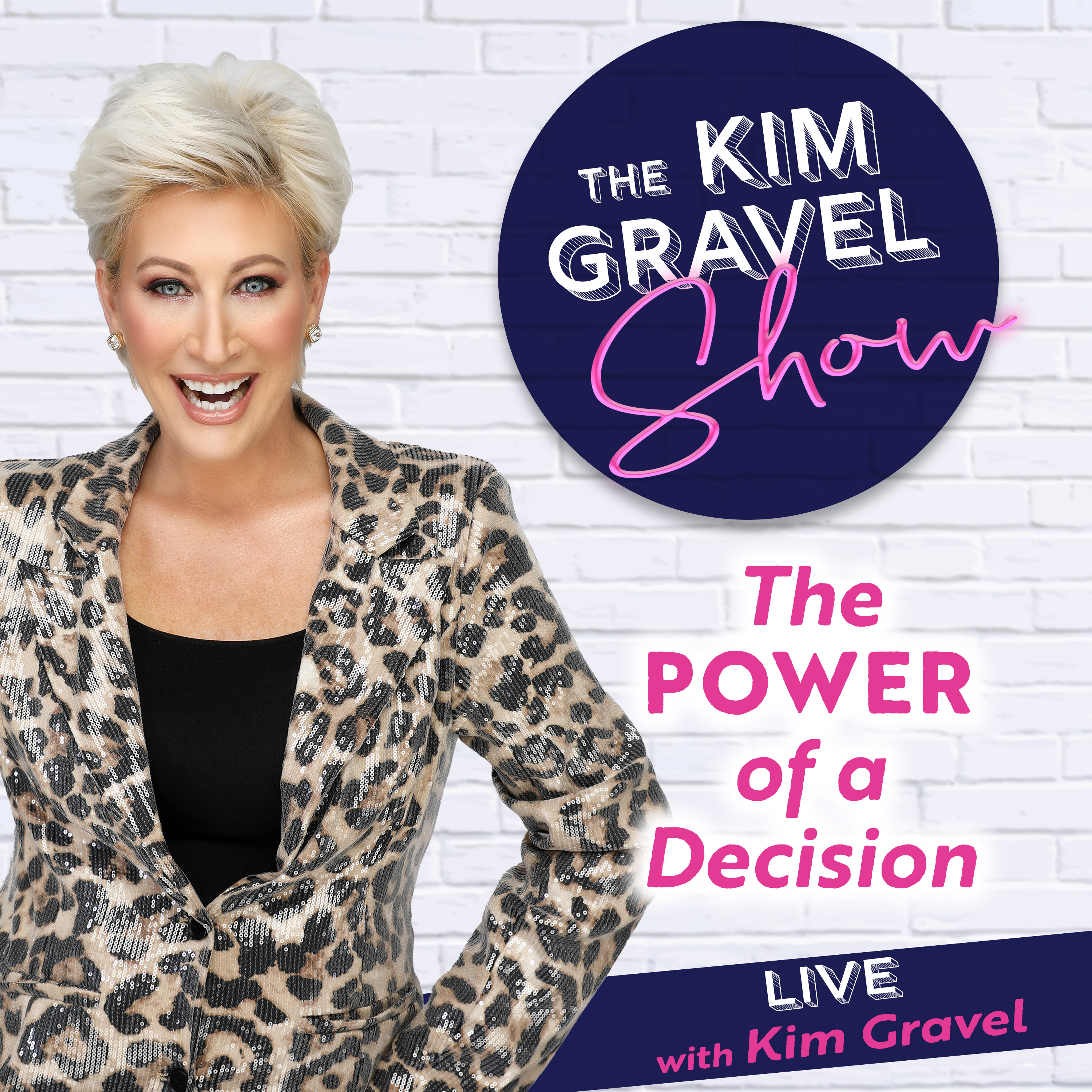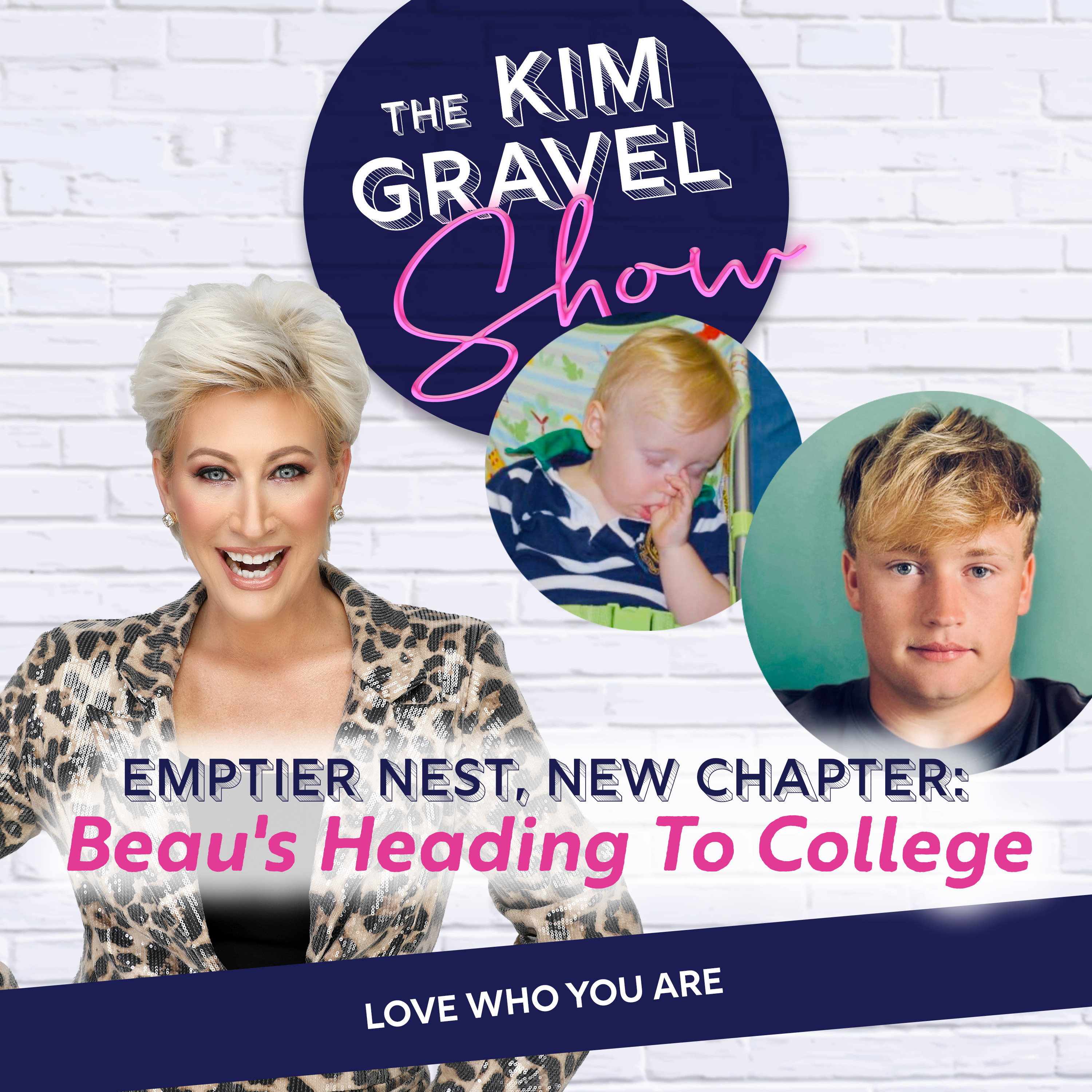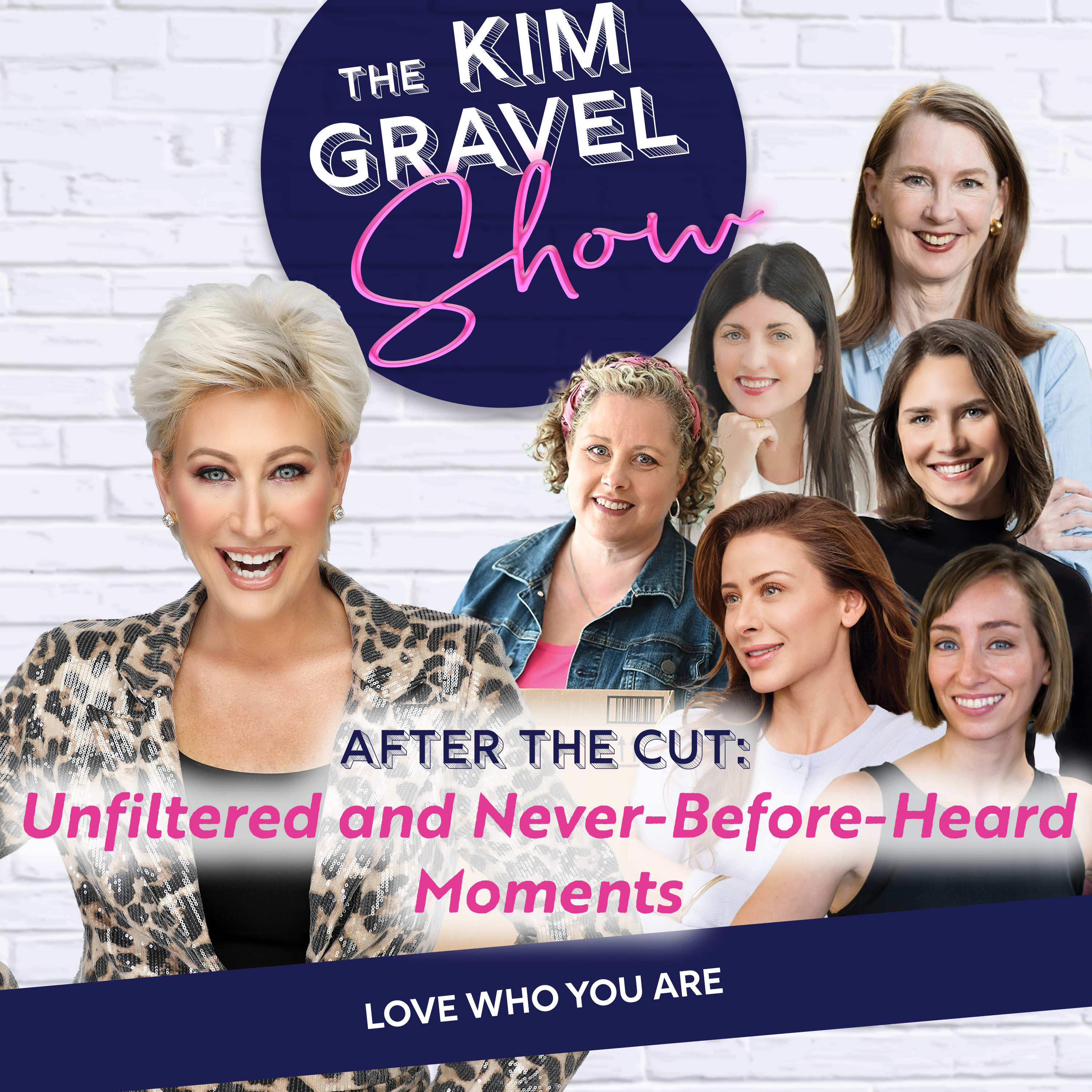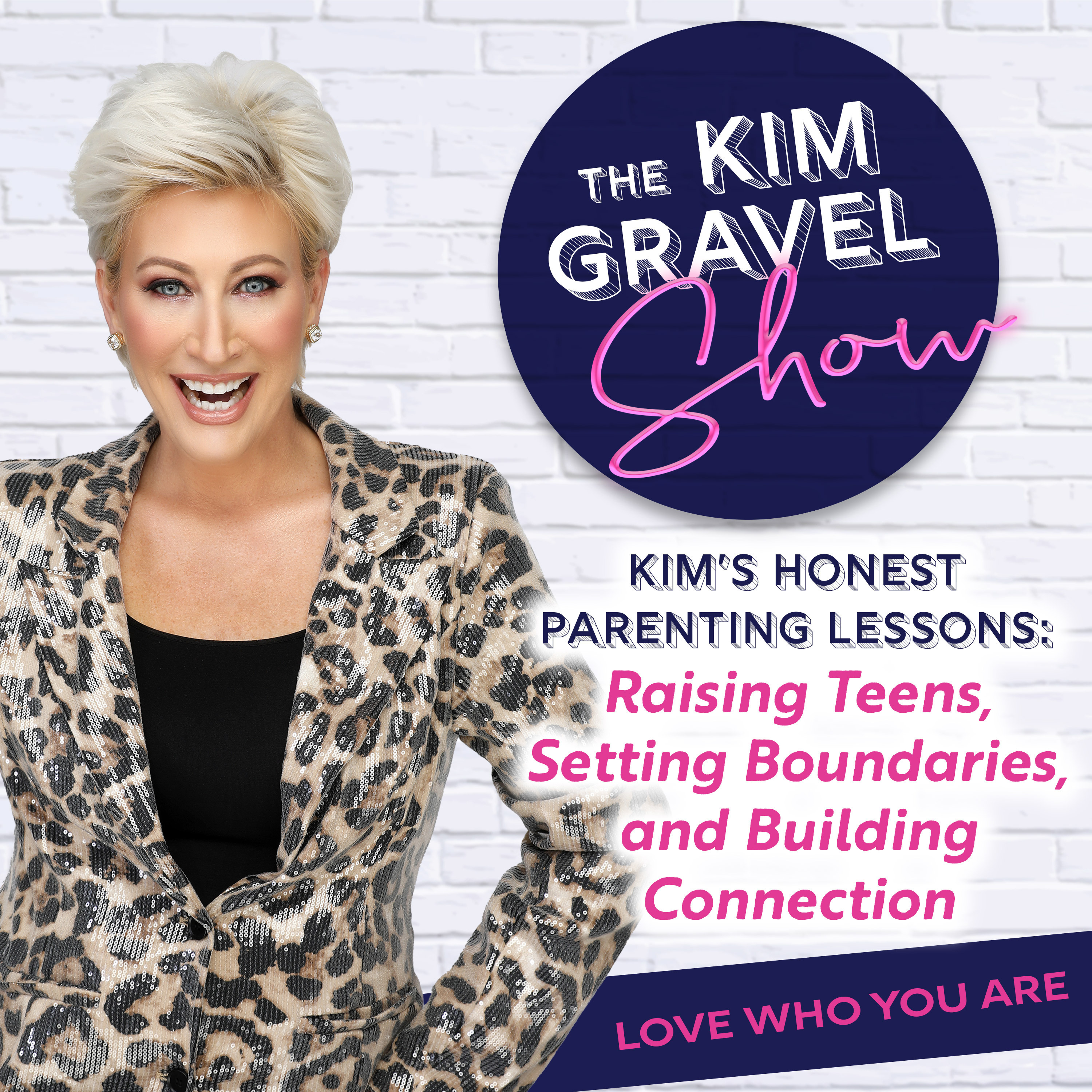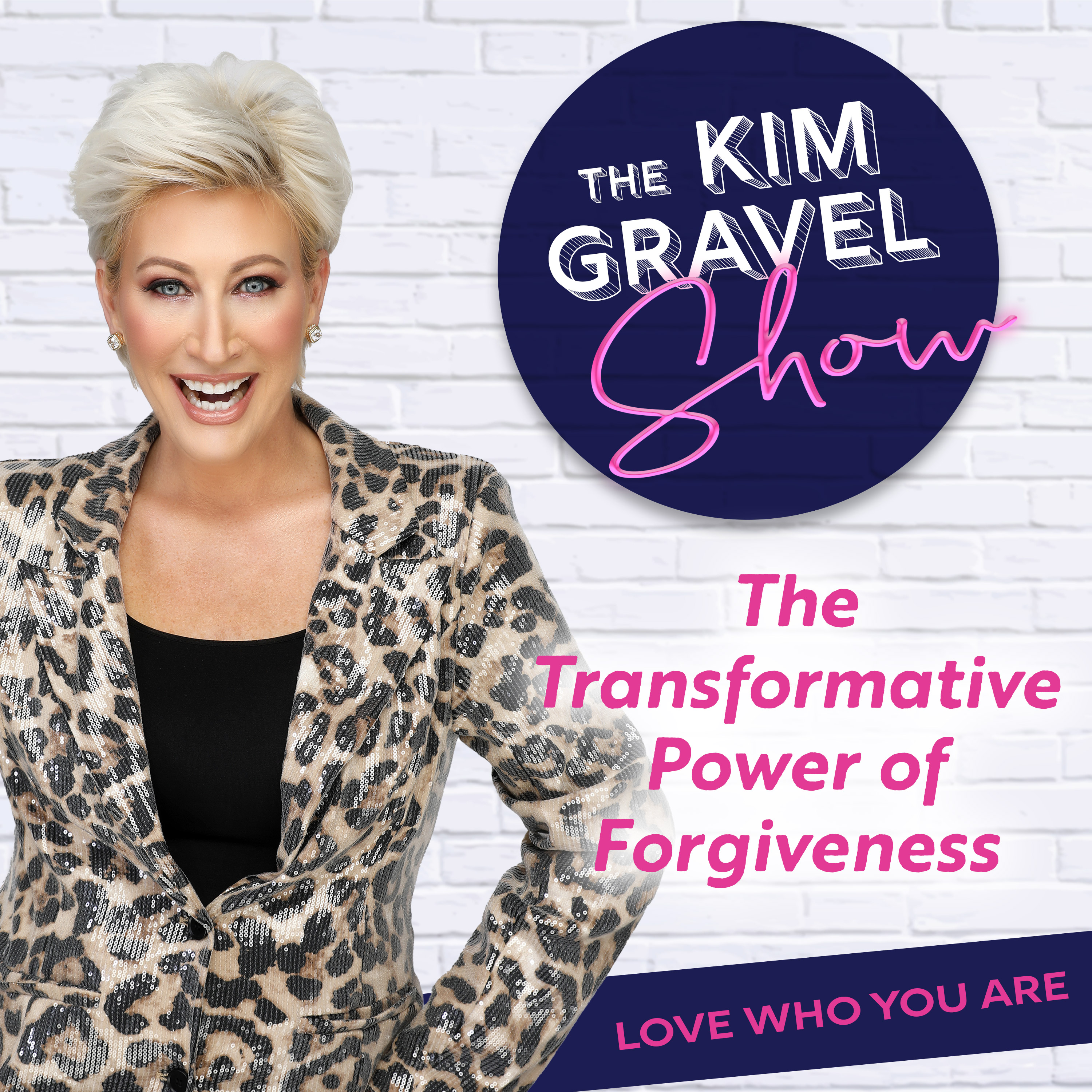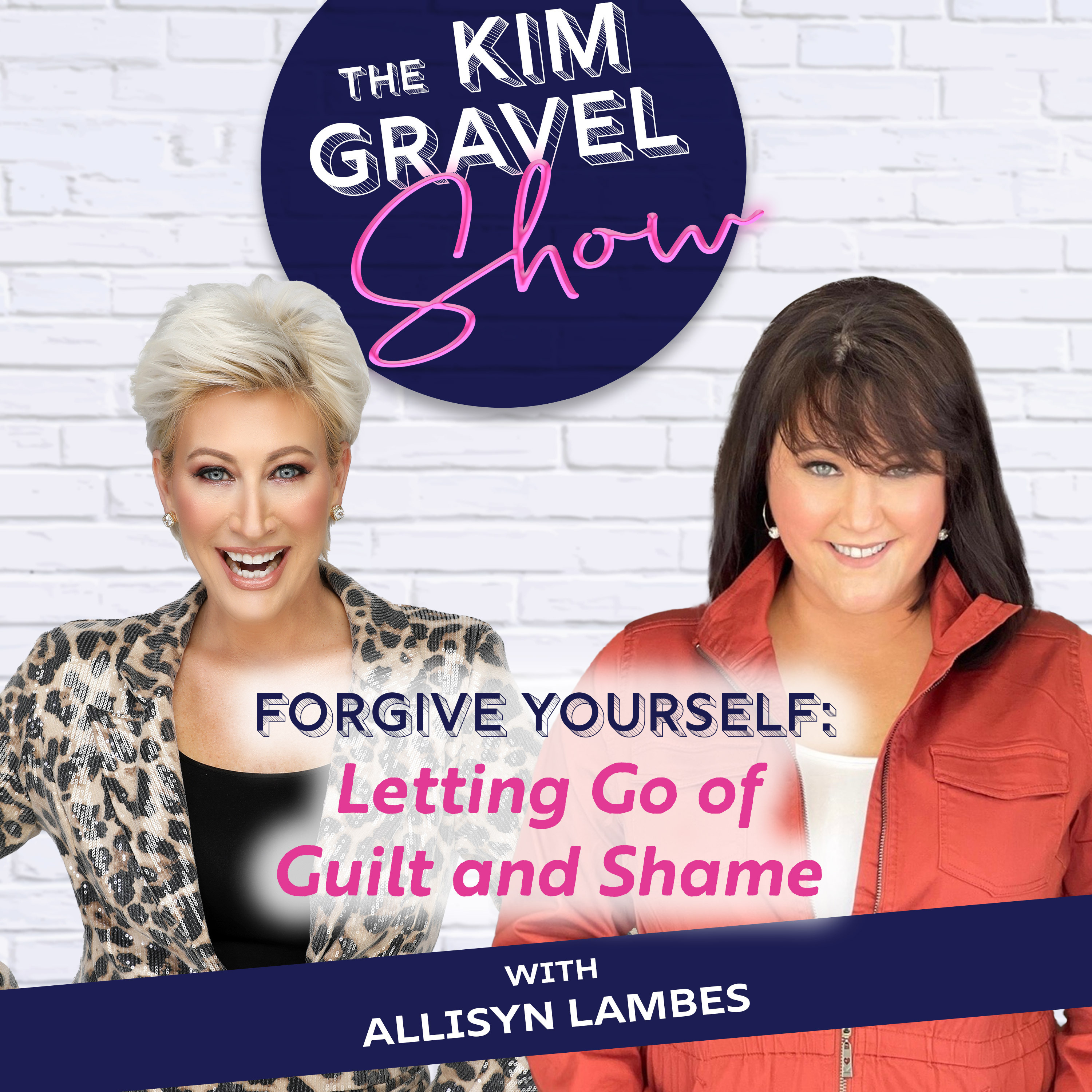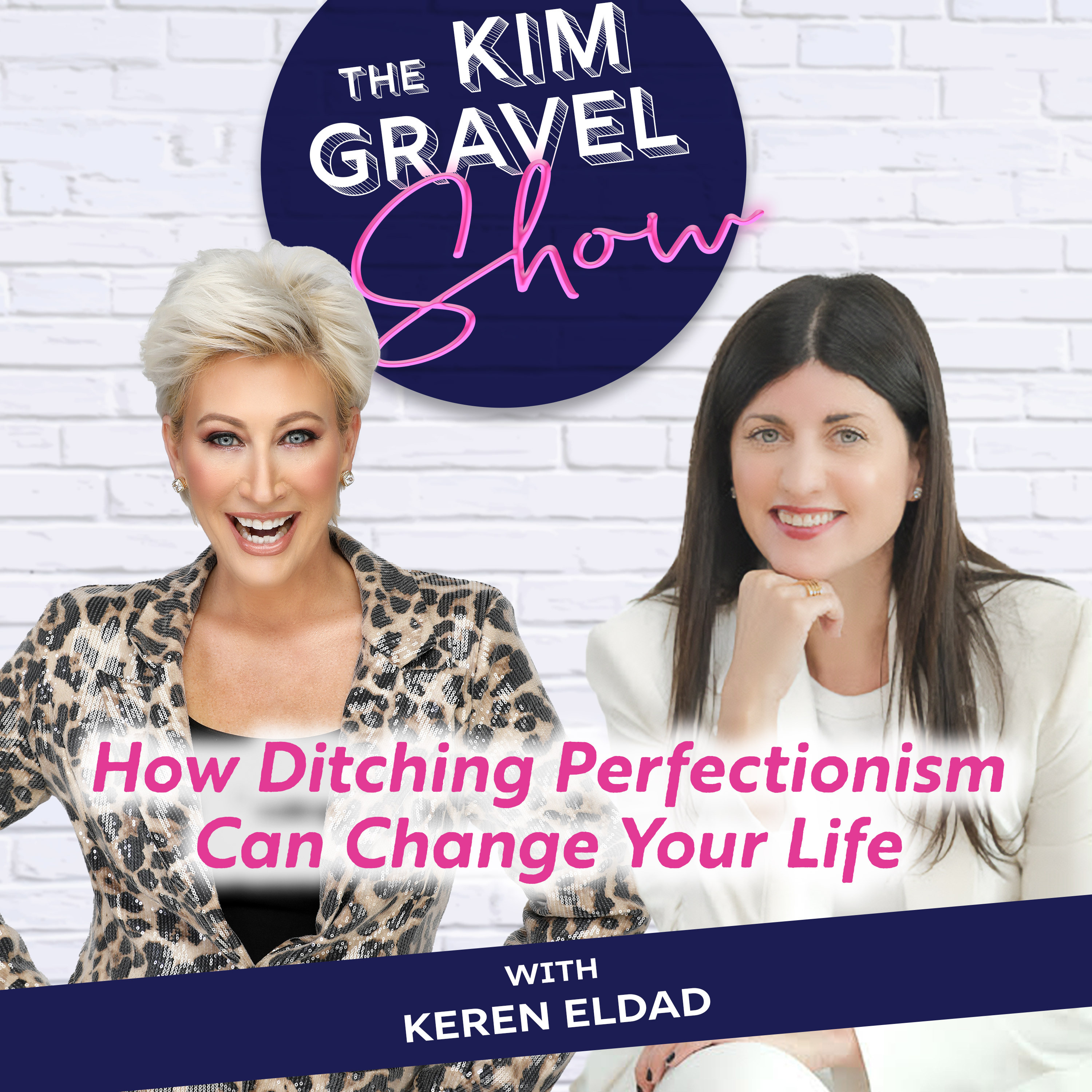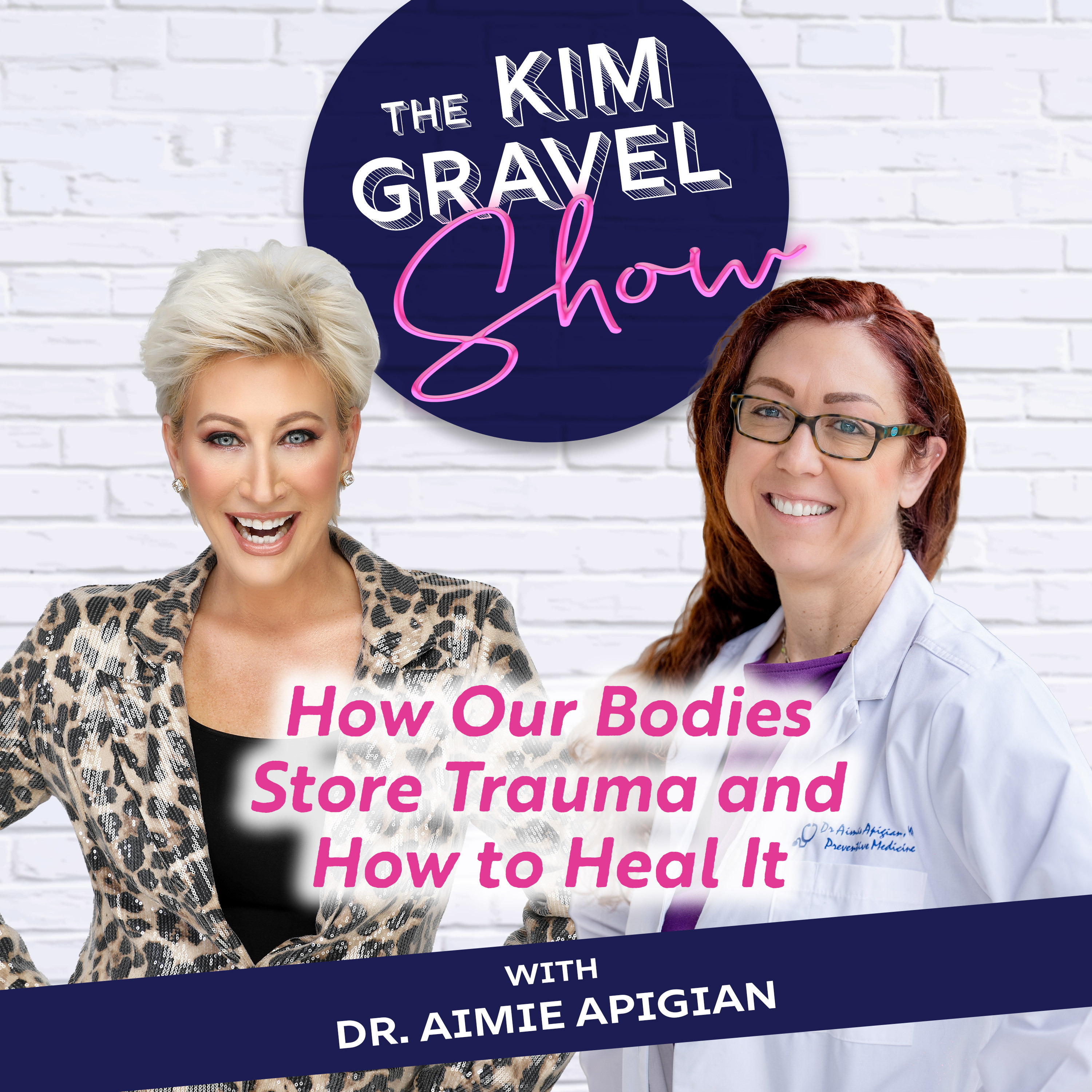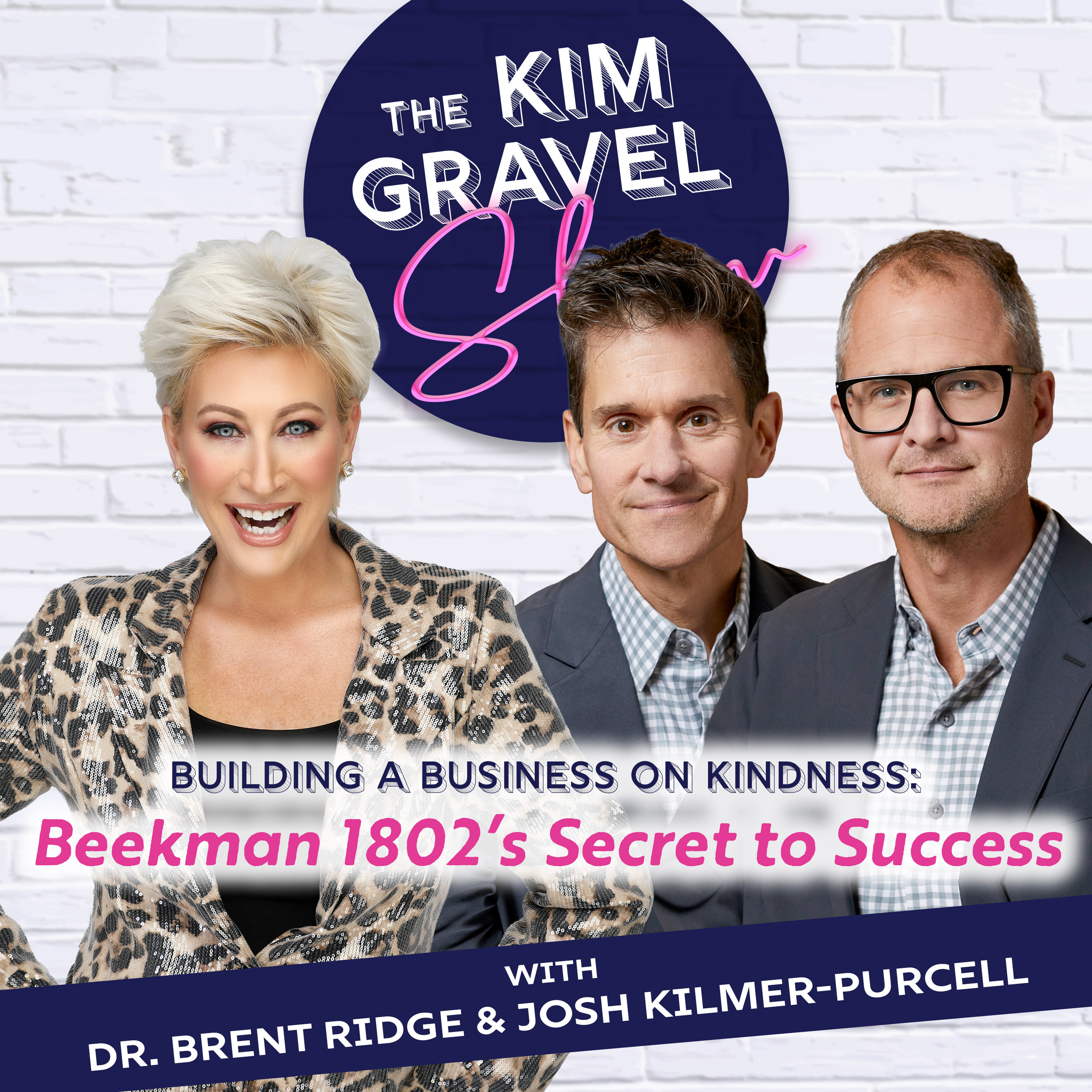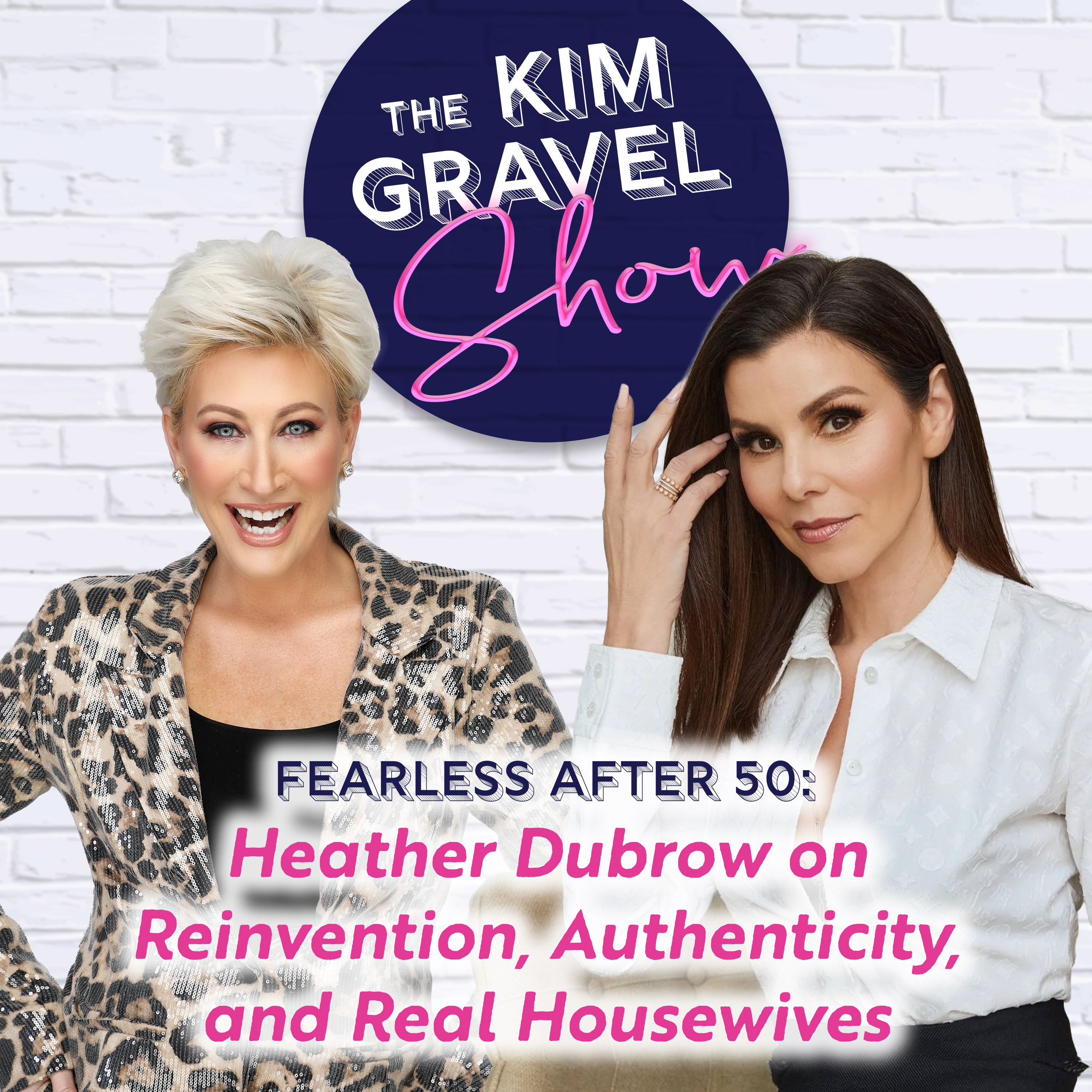From Tragedy to Triumph with Jamie MoCrazy and Jeanee Crane-Mauzy

Doctors told professional skier Jamie MoCrazy she would never be normal again. They were wrong.
Doctors told professional skier Jamie MoCrazy she would never be normal again after she suffered a traumatic brain injury that left her in a coma for 10 days. This week Jamie is here with her sister Jeanee and we hear their incredible story of resilience and recovery.
Not only has Jamie made a miraculous recovery, but she is helping others who have suffered from traumatic brain injury with her foundation, MoCrazy Strong. You don’t want to miss this inspiring episode of The Kim Gravel Show.
My favorite quote this week:
"Recovery is a marathon, not a sprint. It took me around five years to really get back on my feet. But every small victory, like being able to walk again, was celebrated like winning an Olympic gold." - Jamie MoCrazy
Do you want to hear your voice on the show?
Call me and leave me a voicemail at 404-913-6460 and let me know why you love who you are!
There is BONUS CONTENT in our free newsletter so make sure to subscribe at https://www.kimgravelshow.com
New episodes of The Kim Gravel Show drop every Wednesday at 6pm EST.
Join my Love Who You Are movement at https://lwya.com
Connect with The MoCrazy Sisters:
Connect with Me:
Support our show by supporting our Sponsors:
ZOCDOC is a FREE app and website where you can search and compare highly-rated, in-network doctors near you AND instantly book appointments with them online.
Go to https://www.zocdoc.com/Kim and download the ZocDoc app for FREE.
Then Find and book a top-rated doctor today.
*This transcript was auto-generated*
Kim:
Hey, y'all, it's Kim gravel, and welcome to the Kim gravel show. It's gonna be a good one. Great guest today. Not gonna give it all away right now. Zac, you said you've got something. I always get worried when you say, I've got. Just say, just open the show, and then I'll take it over.
Zac:
This is what I said to Kim. I said, just start the show, Kim, I'm not gonna tell you what we're doing. Okay? So today, Kim, I'm completely putting you on the spot. We have extreme. An extreme skier, a couple extreme skiers on the show today. I know they have an incredible story you have to stick around for, but I want to know, Kim, I want to hear your sports stories. Do you have any sports stories from when you were a kid or, like, a sports injury maybe that you got, that you had to recover from?
Kim:
I didn't have a sports injury because I never really tried in sports. So let me just tell you.
Zac:
I'm so glad this is the direction it's going. Yes, Kim. Okay. Go on.
Kim:
Okay. First of all, you're taking a little bit too much joy in my non athletic ability. Okay? Now, let me just say this like, okay, let me break it down to y'all. So when I was a little girl, I wanted to be a cheerleader. It's a true story. And let me tell you something. Cheerleaders are athletes, period. I don't want you to question it.
Zac:
Watch cheerleading movie. Yeah. 100%. Yeah.
Kim:
Okay. So I wanted to be a cheerleader, and I was tall and lanky at the time. I was very. I was like, five, eight and a half at, like, you know, ten years old. So, like, I was always tall. And my mother said, absolutely not. Can you be a cheerleader?
Zac:
Why?
Kim:
This is true. She said, I will never forget the words that were. That came out of her mouth to me. She said, are you kidding me, Kim? You are so klutzy and not athletic at all. You will kill yourself. I remember these words vividly. And plus, you can't scream and yell. You've got.
Kim:
Plus, you can't scream and yell. You'll ruin your voice. You're a good singer. Absolutely not. You're not going to be a cheerleader. And then she said, but you can play some tennis. And so I went and played tennis and hated it. What I loved about tennis was the little sandwiches and cookies and snacks you got in between the matches.
Zac:
So you liked the. Yeah, the tennis buffet.
Kim:
The tennis buffet.
Zac:
Finger sandwiches. So you're in. I'm picturing Kim, like, you're in your tennis whites and you're, like, eating a tiny little sandwich.
Kim:
I looked the door. I looked. I looked the part. People don't think I didn't come correct looking the part.
Zac:
Okay, so I guess the lesson is.
Kim:
I got one more. I got one more. I got one more. So when I was in, I think the 9th grade or 10th grade, I can't remember what grade it was, but the booster club ran by the football team, Parkview High School in Gwinnett county. They were cutting the arts program. I played the viola. I was in the orchestra in school. And so.
Kim:
And don't judge me for that, either. Okay? All you look cool, people. Kim was cool, just in her own way. And so I was in orchestra and I played the viola. And. Oh, gosh, I remember I was in love with the bass player. He was a football player, too. His name was Dusty.
Kim:
Anyway, let me focus. And so, lord, Dusty, you really had a moment there.
Zac:
You were like. And his dad.
Kim:
I did. He was a football player. Cause I'm going somewhere with this. Stay with me. So they were cutting the arts program at Parkview High School. And so I decided I was gonna go and try out for football on protest.
Zac:
Okay.
Kim:
Cause they were cutting the arts program and I was just like. I was gonna make them deal with a female football player. It didn't go well. And I never. I put on the pads and said, I'll never do this again. Murder, death, kill. I can't do it. So to say I'm athletic is.
Kim:
I've got a great personality.
Zac:
Wait, what? Wait, I wanna know what happened. You put on the pads, you went.
Kim:
I never tell what happened. If anybody's watching this that remembers that, if you ever speak a word of it. My protests did not go well. Let me just say that.
Zac:
Could you walk away from your protest.
Kim:
Like I still have a limp? Because I'm just. And let me just say, the guys were fantastic. They took it in stride. I'm just that klutzy. It's. No, it has nothing to do with being hit, playing football. Everything to do with my non athletic ability. My talents lie elsewhere, people.
Zac:
All right, Kim, let's start the show.
Kim:
I'm here with the MoCrazy sisters. Give us a little bit of behind the scenes of your story.
Jeanne:
She landed and then caught an edge and whiplashed her head into the snow. She was very deeply injured and unconscious, and she wasn't gonna open her eyes and be okay. They don't call a helicopter to the hill, unless it can be life threatening.
Jamie:
But one of the doctors said that I was never going to be normal.
Kim:
Talk about taking your mess and making it a message.
Jamie:
And I was so angry. I hated her right then. I was so mad. They can always create a life they love to be living if they're willing to take the steps.
Kim:
If you want to be inspired and lift it up, you've got to go check it out. Okay, y'all, I have got a special episode today. You're gonna see why in just a minute. Because I have two of the most incredible guests on the show. I've got sisters. I've got Jamie MoCrazy. I can't say that name without going MoCrazy. And her sister, Jeanee Crane Mauzy.
Kim:
They're here today. Jamie was an extreme skier who suffered a traumatic brain injury while competing at the skiing world tour finals. I mean it. Ugh. Can you imagine? She was in a coma, y'all, for ten days. And when she woke up, her life would never be the same. Since then, she's turned her mess into her message in such a beautiful way. And with the help of her sister, they started a foundation called MoCrazy Strong, where they help survivors of traumatic brain injuries.
Kim:
Y'all, let's welcome the MoCrazy sisters, Jamie and Jeanee MoCrazy.
Jamie:
Hi. Thank you so much for having us. I was just gonna keep dancing.
Kim:
I know. I was gonna say Zac the MoCrazy. That is the name of all names. Like, how did that come about? Y'all, we just gotta tell everybody how that came about. Straight up, Zacary.
Jamie:
That is a good question. So since I was, like, eight months old. So this is a story most of my life has to do with stories that I don't actually remember. And I was eight months old, and I climbed up the drapes in our living room, and I got stuck at the top, and I said, mommy helping me. Mommy helping me. And my birth last name was Crane Mauzy. And so my mom came out, and she goes, oh, my little MoCrazy, because she loved the name MoCrazy because it was a combination of Crane Mauzy all twined up. And then I continued to be a little bit MoCrazy.
Jamie:
I was very competitive. I competed in everything, clearly. And then I became a professional skier, and the announcers would say, mo crazies on course. And they actually called my sister Tiny MoCrazy, even though she's, like, four inches taller than me now. So I was MoCrazy, and she was tiny MoCrazy.
Kim:
Well, I mean, I might have to steal that name, to be honest with you. Because Zac knows my little sister, too, and she is definitely MoCrazy. She MoCrazy.
Jamie:
Yeah. So what MoCrazy. What MoCrazy means is that you're crazy, but you're a little bit calculated and smart about being crazy MoCrazy.
Kim:
I'm in total agreement with that, and I resonate with that. So, yeah, you need to make me a MoCrazy sister. I want to be drafted in. Okay. Your film, which I watched, and everybody listening within the sound of my voice or watching this right now, has got to go watch it. Your film, MoCrazy strong, tells your story. Take us back. Tell us a little bit of the background about your story.
Kim:
Because you were a competitive skier, you had this crazy injury, and it left you in a coma for ten days. Can you tell everybody a little bit behind the scenes and what happened in your story before we get to the movie?
Jamie:
Yes. So, in my story, I would actually like Jeanee to tell it, because Jeanee was at her first ever world tour finals, and I don't remember anything that happened, and she witnessed it all.
Kim:
Okay, so how old were you? Like, give us the. Give it to us in details.
Jeanne:
So, I was 18 and Jamie was 22. We were in Whistler, Canada, for a competition called the world Tour finals for slopestyle and half pipe skiing. I only compete in half pipes, so I was supposed to compete the next day, and I was just watching Jamie in slope style. She was trying a new trick that she had done in practice, but not in competition yet. And actually, she landed and then caught an edge and whiplashed her head into the snow. From my position, I was at the top of the hill. So because of the angle of the jump, I couldn't see the landing. But I heard the radio of the ski patrol next to me crackled to life, saying, we need all hands on deck and a helicopter and standby, which is when I knew that it was very serious, because they don't call a helicopter to the hill unless it can be life threatening.
Jeanne:
At which point, I put on my skis, and our coach and I ski down to Jamie, and she was just convulsing on the snow, like, her eyes rolled, black blood coming out of her mouth. She was, like, gray, full, like a zombie. Completely unnatural. This keep a chill about her at the same time. And more of them just came. It was, you know, it's one of those moments that I can never forget, but it's also blurry at the same time because so much was happening, there was a lot of people trying to say, like, oh, Jamie, wake up. Wake up. It was very apparent that she wasn't just knocked out.
Jeanne:
She was very deeply injured and unconscious, and she wasn't going to open her eyes and be okay. Whistler, at the time, actually had first respond doctors on Hill, so they were able to intubate her and iv her. So she stopped convulsing on snow. So before they even put her in a sled, they could stabilize her so she had enough oxygen flow through stable breathing to her head instead of hyperventilating. As well as she wasn't convulsing anymore, because through the iv, they could give her a sterilizing drug, and then they put her in a sled. And you can see one of the pictures in our film. One of the ski patrol had to crouch over the sled to manually pump her breath because at that point, he was responsible for keeping her alive.
Kim:
It's such a dramatic story, Jamie, when you were on the. You were skiing and you were doing this jump or this trick that you were doing, did you know? Do you know what I'm saying? Like, the moments before it happened, what was going through your mind? Like, did you know, oh, this is not going well, do you know what I'm saying? Like, did you have this out of body? Like, I'm getting ready to do something that's not gonna work here.
Jamie:
Well, I do know what you're saying. The thing is, though, I don't have any memory of a week before. No, I have none of the day, so I don't have any memory. I have skied my whole life, and I have fallen many other times before, and I would guess because I landed on my feet. So I probably until, like, milliseconds before it happened, thought everything was fine, which actually, I think, plays into the fact that I had no PTSD because I had no fear prior to the accident. It was just no memory.
Kim:
No memory.
Jamie:
Yeah, I was, and my whole life prior to my brain injury, as a professional athlete, you fall a lot, you fail a lot, you struggle a lot. So all that was something I was used to. And so, literally, it was probably within milliseconds that I had any understanding that something was happening.
Kim:
Were you wearing a helmet?
Jamie:
Yes. If I was not wearing a helmet, there's no way I would be having this conversation with you.
Kim:
What's a miracle? You're having the conversation now. You were in the coma for ten days. I'd love both of your perspectives on that. Jamie, do you remember anything being in the coma? Did you see the white light? Did you have any of those experiences, those near death experiences we always hear about. And, Jeanee, what was it like sitting there? Cause when you're in a coma, I mean, for ten days, that's not good. That's not a good diagnosis.
Jamie:
Yeah, well, it's interesting, because when I woke up from the coma, I had serious amnesia. So no memory for, like, another month after I woke up, and then have very, very fragmented memory for multiple months. So it was a very prolonged process of this memory coming back. And so when I woke up from the. So I have none of these memories now, like, thinking back on it, I don't have memories of this. But when I woke up from the coma, I did have memories that the man, the doctor, one of them.
Jeanne:
Not the one featured in the film.
Jamie:
Yeah, we've had some amazing doctors, but one of the doctors said that I was never going to be normal. And I was obsessed with this concept of being normal. And this is somebody who legally changed their last name to MoCrazy. And before my brain, I was never normal. So my mom was like, why do you want to be normal? And I was like, because that man said I would never be normal. So I did have recollection, and they have done studies that show that even though your cognition is different in a coma, you do have a certain amount of memory. You are a human being living there, so you need to be careful about that, and you need to not stand in front of someone in the coma and tell them they're never going to get better, because.
Kim:
Can you believe that? Because you were hearing that you were. Yeah. You were absorbing that.
Jamie:
Yes.
Kim:
As he was saying that.
Zac:
Wow.
Jeanne:
Yeah. So it was. I mean, it's definitely the most. It was the biggest trauma that my family had lived through at the time, but we just kept this attitude the whole time, kind of this mindless belief that she was going to be okay and that we were going to go above and beyond. And so, starting in the coma is when we started some of our integrative health approach, where my mom talked with the doctor about adding vitamins and minerals into her feeding tube. So she got vitamin B, vitamin C, and fish oil, and also Arnica pills in her feeding tube, which isn't part of the normal protocol. But my mom has a certification in nutrition and is studying nutrition for most of her life and understands the science behind how those vitamins help somebody, especially in a coma, you need more than just the basic nutrition. And so that was approved and implemented by the hospital system.
Jeanne:
So we started then, and then we continued where we had a lot of scientific backing in our family. Mostly through our mom, of integrative health to complement the hospitals and the western system that we were part of so that Jamie could have a full recovery. And through that, and just through kind of our blind belief, like, she's always going to be okay and we're not going to accept. And some people did.
Kim:
I love that.
Jeanne:
Like, oh, you, like, you gotta prepare. Like, you're gonna be taken care of her for the rest of your life, or she's never gonna be the same or stuff like that. And we were like, that's. We're not accepting that. We're gonna find the resources. We're gonna take as long as it takes, but we're going to get her to be an independent, intellectual adult again.
Jamie:
Yeah.
Kim:
How long did that take? How long did that process take? Because a lot of people, they hear the story now, and it's this miraculous story, but there's. There's. The journey is not always so easy. Well, it's not easy at all, in fact.
Jeanne:
Yeah. So I'm actually going through an ACL recovery today, and my physical therapist explained it to me in a way that's very similar to Jamie's, where at the beginning, it was like, more explanation. Like, the growth was bigger. You could see. She learned to walk, she learned to talk, and she had to put in minimal efforts to get these big results. And then the end is where it kind of started flattening out where she had to put in just as much effort. But the changes were so tiny. But all those tiny changes ended up getting her to where she is today.
Kim:
And it took how long?
Jamie:
I would say it took at least a good five years. And one of the big things, as Jeanne pointed out, was that at the beginning, my visible success was applauded a lot. I was a public figure in the little world of skiing. People wanted to hear me give speeches before I could remember what I was talking about. They wanted to hear from me, and they wanted to applaud me when I relearned how to ride a two wheeler again. They wanted to applaud me when I went back to skiing again and had to relearn everything that they could see. And then I had multiple years of recovery to be able to articulate my words and my memory retention and my cognitive and emotional challenges were all invisible. And those took multiple years to heal.
Jamie:
And we will have people who saw me and had a conversation with me when I was, like, two years or three years out and then saw me again. It was a jump to, like, six years out, seven years out, and they're like, wow, you changed. And they don't know how to articulate it, and I don't know how to articulate it, and we don't know how to explain it. But somehow I changed and continued to heal, and that's when I was developing my executive functioning, and that's when I was doing all of those last little things. And the important thing is I continued to know that I wanted to push myself because I had been an athlete my whole life. I knew that even the best athletes have coaches and are constantly improving themselves. Even though starting at like a year after, when I still had visible challenges and I was definitely not okay, but I thought I was okay about a year afterwards. I knew I could get better.
Jamie:
So that was a huge key aspect, was I continued to improve.
Kim:
All right, we're gonna take a short break, but I've got more with Jamie and Jeanee after this because I like what you're saying. It took time to see the changes, and somebody's listening right now that's going through some trauma or has been through. Maybe you're in that period where you're putting in the effort and seeing minimal change. We're going to talk more about that with Jamie and Jeanee right after this.
Kim:
All right, y'all, I'm here with the MoCrazy sisters.
Kim:
This. I just want to jump back in, Jamie and Jeanee, because I want to talk about how you. It took you like, years, over five years to get back to. Should we do normal? Should I do the air quotes and do normal way of life? I mean. Cause you're not really normal, but. And your story's not normal, but, you know, just to that functioning life. You told me you're skiing. You went skiing.
Kim:
You put on a pair of skis after all this?
Jamie:
I did. I did.
Kim:
And I love that is MoCrazy. That is MoCrazy.
Jamie:
Although the interesting thing is that the number one place to get a traumatic brain injury is in the bathroom. So unless you're going to tell me that you're not going to go to the bathroom again, I'm going to tell you that I'm going to continue to ski. I did.
Zac:
That's some Elvis level stuff right there. I'm sorry, I have to break in. That's Elvis level stuff. Why the bathroom?
Jeanne:
Because everything is hard and there's a lot of sharp corners and it's all slippery. And so the number one place who slips and falls, that actually results in a brain injury is in the bathroom, which when we do our policy work, it's great because, you know, everyone wants to say, well, if we don't have skiing, your story doesn't apply. But where you have bathrooms, and it does apply to you as well.
Jamie:
And then number two is car accidents. So if you're going to tell me you're never going to get in a car again and you're never going to go into a bathroom, well, then we can talk about that. I might not ski again, but actually.
Jeanne:
Our family never questioned that. She went back to skiing with professionals eight months after her injury. And that was one of those kind of blind expectations that our family just was like, well, we come from a long line of skiers. Our grandmother was a professional skier in the forties. And if you can walk, you can ski.
Jamie:
That is something important, though, that she brought up. I went back with a company that was trained in physical disability and cognitive disability. So if you have a change in your ability level, you can get back to doing whatever you want to do in life, but you have to be aware to do it safely. If I had just gone back on my own, I would not have understood my changes in ability level, and I would have been a danger to myself and others. And that's something that's important with brain injury recovery, is to make sure that there are policy and protocol and place, and people are guided to not be a danger to themselves or society.
Kim:
Okay, so after all of this, and y'all gotta go watch the movie, it's amazing. And we're gonna give you all that information at the end of the show. But MoCrazy strong is a brain injury foundation, and you started this. It focuses on what's possible right after a brain injury. It raises awareness. It increases the opportunities through research, education, and programs. What. How did that come to be? And how.
Kim:
What is that like now, today? I mean, what. How? Talk about taking your mess and making it a message. This is like, how did that all happen?
Jeanne:
Jamie was, you know, quite a well known skier in the ski industry. So her accent, it was very public right away. So I came up with the hashtag hash mocrazystrong. Mocrazy was already our name. Mocrazystrong. Because MoCrazy was going to get stronger and kind of collected everything from there. Also, within the first year, we started doing peer to peer counseling with other families that had been going through similar injuries. And we had a lot more availability and knowledge as a family than many of them do.
Jeanne:
We had a doctor. We had, you know, an Ivy League educated, early childhood development specialist. We had people.
Jamie:
A sister who was a doctor.
Jeanne:
Yes.
Kim:
Our oldest sister.
Jeanne:
Yes.
Kim:
Yeah.
Jeanne:
Yeah. And so we had ability to provide more for Jamie's recovery than the system provides. And so we can help fill in the gap of the system through what we did with Jamie and what has continued to be studied. Our mom is in a PhD program right now studying mind body medicine with a focus on brain injury recovery. So collecting the actual data and the science, so it's not just, oh, Jamie's story was a miracle. Well, it's actually repeatable. There's strong evidence that many of the things we did with her will increase recovery for everybody.
Jamie:
Yeah.
Kim:
Wow.
Jamie:
One of the things I always say is that it's true. You can't promise people that they will have my recovery. However, you also can't promise them that they will not. And if they take steps to better their life, no matter what changes in ability have developed from their brain injury, they can always create a life they love to be living if they're willing to take the steps.
Kim:
What if somebody is suffering right now with. With a brain injury of any kind? What can the foundation do for them? Can they reach out to you and get information? Okay, tell me about that, because I just felt that I was like, oh, I wonder if. And does it work for any brain injury which you guys propose and give?
Jeanne:
Yes. So we run a program called MoCrazy Method, and it goes through the different steps that we did with Jamie, and they are peer to peer science review, and they are led by our mom, who is a PhD candidate and also an Ivy League graduate in two different master's programs. So we have, you know, the real bad thing to have these programs, and they are applicable to people in all different stages of development. The more intense your development and your rehab is earlier on, the easier it is to get results. But you can still get results, and we still have people go through our programs 20 and 30 years after brain injuries.
Kim:
Well, and the MoCrazy method. Go ahead, Jamie.
Jamie:
Go ahead and let me say something about our programs. So, this is based off of what happened to me when I was in the hospital, and my mind was still very fuzzy. My whole brain, my body was paralyzed because of the brain stem damage. And so what did my mom do? She tied down, taped down my strong side. So I had to work and utilize my weak side. So I build those habits, which is what neuroplasticity is, the building of habits to rewire your brain. She forced me to do that, and I was so angry. I hated her right then.
Jamie:
I was so mad. However, if that had not happened, I would not have the results I had. So when you do this bootcamp, it will be challenging, but you will better your result in the process.
Kim:
Okay. So the MoCrazy method gives you that physicality, the science, all of that. But does it also talk to you about, like, setting goals? Like, is there this, for lack of a better word, this inspirational aspect to it, too? You know?
Jeanne:
Yeah, absolutely. Jamie and I are both part of the program, so we're at every meeting, and then you're going through this transformation with others that have also, you know, suffered from similar injuries. And so you have that camaraderie amongst each other. And then we try to stay connected and have monthly meetups. We try to help encourage them. We hear so much Ikea in brain injury. I can't do this. I can't do that.
Jeanne:
And we try to help encourage them that you can. It may be different, and it may be hard, but, you know, someone recently told us, well, I can't play golf. Cause I had a brain injury.
Jamie:
But, like, have you tried?
Jeanne:
Why not? Like, you know, I love Jamie. It's kind of hard. I'm not a good golfer at all. I'm terrible. But, like, if you want to go to a range and hit a ball, go try. You're not hurting anyone in the process, and a little struggle is good for you.
Kim:
Oh, lord, come tell my kids that, please. Anyway, Jamie, you said in the film you felt washed up at 23. Okay, how do you move past, or how did you move past this initial feeling of loss? Because I'm sure someone's watching right now, and they feel like they like it. Like the golfer. I can't golf again.
Jamie:
So the two things that really helped me move past that feeling of completely stuck was one, I went to therapy. Finding someone to help you is a good thing to be doing. I didn't think I needed therapy. I was like, I'm fine. I should be lucky. I should be happy. My mom actually convinced me to go to therapy. I cried the whole first session.
Jamie:
Loved it. It was a life changing thing. And then the second thing to do is find somewhere where you need to set goals and then set attainable goals to reach those goals. So, for me, I went back to my university. I hadn't graduated yet because of my skiing career. So I went back, and I had teachers who graded me. And during finals week, I was like, why did I want to be graded?
Kim:
But I really.
Jamie:
Yeah. I'm like, really? But I actually got straight a's that first semester, and it's interesting because that first exam that I had in math, I got a c minus on, and so I knew I wanted to do well, and I knew a c minus is not doing well, so I did what it took to be better. I went to lots of extra work programs and stuff like that, and. And then by the end, got a high enough grade that I ended the semester with an a. And that was so important for me to have something tangible and concrete in that structure. And so what we advise people is to go back to your community college and take a class or do an art class or join a book club doing, or a Pilates class. Like, there's.
Kim:
So you're saying work the muscle. Work the muscle.
Jeanne:
And with an injury as severe as Jamie's, it was like she was reborn again and went through all the stages of development. And where the system ends is like a middle school level. Like, you can walk pretty well, you can talk, you, you know, you can get by. But we wanted her to be an independent, intellectual adult. We didn't want her to maintain being a middle school level intellect while she was in her twenties. And so my mom did algebra with her again. We had a specific personal fitness trainer to work on her balance. When she was talking about her hand, she used to only talk with her left hand.
Jeanne:
And every time we were in a social setting, I would just push it down. And she gets so mad at me again, like, what was embarrassing and hard. But we had to regrow that pathway through the damage in her brain stem that her right hand needed to become dominant again because she's a right handed person. And going back to university and getting a university to study after brain injury is definitely one of the contributing factors to being able to then be an independent, intellectual adult. The other one quick aspect is that social interaction. Yes. We don't talk about that really at all through the system of brain injury. But if you have kids, you understand that you have to teach them social skills sometimes.
Jeanne:
Like when you have, like a five.
Kim:
Year old, isn't that especially today, girl with technology, right?
Jeanne:
I mean, yes. When you have a small child, you teach them, like, hitting someone in the face is not appropriate or calling somebody names. I mean, you have your exceptions, but.
Jamie:
You teach those things.
Jeanne:
And after brain injury, people are so scared to fend the person who has survived the brain injury, they think that it's impossible for them to learn social skills. It's not their place. They're super uncomfortable, all these things. And you really have to actually go through those same developmental stages of like, well, this is appropriate. This is not, this is why those things aren't appropriate in these scenarios. And then you can have a socially acceptable person.
Jamie:
Like, I had a friend that I called 20 times cause you didn't answer the phone, Jamie.
Kim:
I think I've done that with, like, an ex boyfriend. So I don't know if that's because of the brain injury or it's just I'm a stalker. Stalker one nine. I don't know.
Jamie:
Well, that's what I say about the human factor of a brain injury, because after my brain injury, I lost everything excessively. And guess what? I still lose my phone, and my husband will be like, babe, look in your pocket, or I'll lose it. And it's like hanging around my neck. That doesn't have to do with the brain injury, but if it's extensive, it does have to do with.
Kim:
No, I hear what you're saying, and I love it, because I love that you're taking Jamie and Jeanee, and I love that you're doing it together as sisters. What an amazing blessing that is. But how you're offering encouragement, practical skills, and inspiration to move on past a traumatic brain injury, or any brain injury, for that matter. What do you hope the movie does for people when they watch it?
Jeanne:
I hope that it resonates with them. We always feel hear from so many brain injury survivors that they feel alone, even though brain injury is the largest acquired disability in the US alone, you are not alone if you are struggling from a brain injury. And I hope that through watching the film, you understand that there are. There's a whole community of people out there that are survivors, family, caregivers, professionals, and that you can have support, you can have a fulfilling life, and that you can be actually alive to thrive.
Jamie:
And there are ways that you can recover. That's another big thing, is that people think something tragic happened to them and they're destined to be disabled forever. And you are able to better your life and create a life you love. Like, we've had conversations with so many individuals who said, wow, that film shows that I'm not making up my struggles. They're real. And that I can fix them. That's real, too.
Kim:
Y'all gotta go see the film. I'm gonna tell you exactly where you can go watch this film. But before I do that, before I let you guys go, okay, Jeanee and Jamie, I'm going to do what we call rapid fire questions. So, rapid fire is what comes up, comes out. Do not censor yourself, and don't think about it. I did this with my sister on TikTok, and it exploded. It was tons of fun. So I'm just gonna ask you a question, and then I want you just to say together in unison.
Kim:
What you think. Like, if you think it's Jamie, say Jamie. If you think it's Jeanee, say Jeanee. Like I'm gonna say. Who likes chocolate cake? You know, and then you just answer right out loud. Okay, we're gonna see how. How in tune the two mo. I get it every time I say it.
Kim:
The MoCrazy sisters really, really are. Okay, here we go. Rapid fire questions. Which one of you two sisters is the funny one?
Jamie:
Jamie.
Jeanne:
Jamie.
Kim:
Who is the better driver?
Jamie:
Jeanee.
Kim:
Oh, God, they gonna be good at this. Zac. Who's most likely to cry in a sad movie?
Jamie:
Jamie.
Kim:
Who's most likely to sleep through your alarm?
Jamie:
Jeanee.
Jeanne:
Yeah. Really? Jilly. The youngest sibling?
Jamie:
Jilly.
Kim:
All right, Jilly. They're throwing you under the bus.
Zac:
How big is your family?
Jeanne:
We had five siblings. The oldest one is the one that passed away from cancer two years ago. So now there's four siblings.
Kim:
Well, I'm telling you, your parents, you got a strong parents. Okay, here we go. Spend their money on something weird.
Jeanne:
Probably me.
Jamie:
Yeah.
Kim:
Who's most likely to have their cell phone battery die?
Jamie:
Jamie.
Kim:
Jamie. I said it, too. I could tell. How did I know that? How did I know that it would be Jamie? I'm so getting ready to be grafted in. It's not even funny. Who is the messiest?
Jamie:
Jamie.
Jeanne:
Jamie.
Kim:
Jamie. Yeah, I could say that, too. I don't know why I can tell that. Jamie, I think you and I are very similar. You're a very passionate person. Okay, who has better style?
Jamie:
Jamie.
Jeanne:
That's, like, one of my biggest. My biggest passion is clothes. So, actually, for all of the film festivals we went to, I designed and sewed my own outfit. So I have, like, a genie collection, and I think Nick Lowe's is an artwork. I love it. And I dress her most of the time.
Kim:
Sounds like Jeanee's running the show. Here we go. Who is most likely to end up in jail?
Jamie:
Me.
Kim:
If one of you had to go to jail, who could survive again?
Jamie:
This is another sister.
Jeanne:
Yeah, we had one of those. The one that is inside the whole time? That one, yeah.
Kim:
We're not talking about her. We're not talking about her.
Zac:
She goes.
Kim:
She goes. Our other sister, she's right over there. Okay, we're moving on. We're moving on. Now, I have a question for both of you, and I want both of you to answer. Okay. Who is your celebrity crush? Jeanee.
Kim:
Oh, you got one girl. Watson.
Jeanne:
I was Emma Watson. I love her style.
Kim:
Oh, she's fantastic. I know, too. I love her style, too. Okay. What about you, Jamie?
Jamie:
I know, um.
Jeanne:
It'S weird to think about on this.
Jamie:
Yeah, it is hard to think about all this, but, um, I. There's, like, a lot of things I, like. I have a crush on about a lot of different people, but then there's all things I don't have a crush on about them.
Jeanne:
You have to pick one.
Kim:
Um, you have to pick one.
Zac:
No one's perfect.
Jamie:
I know. I know. No one is perfect. And they wouldn't be a good crush if they were perfect. Well, I it's not a celebrity crush, but, like, who I idolize and look up to the most is Mel Robbins, and.
Kim:
Oh, I love that. Perfect. I love her. She's so fabulous. She's a celebrity. We'll go with that. Favorite junk food, Jeanee. And it has to be junk.
Kim:
Okay, don't give me, like, celery with ranch dip. I don't want to hear that. I want junk. Nasty junk food.
Jeanne:
How about girls? Cow puppies?
Kim:
Oh. What? Oh, my gosh. What kind? Like, there's Samoa Tagalongs. Samoas? I'm not even a coconut girl in love.
Zac:
That's the wrong answer.
Kim:
I'm with you.
Zac:
I'm sorry.
Kim:
It's not the wrong answer.
Zac:
It's not.
Kim:
Jeanee, you're dead on right? You're dead on right?
Jamie:
What's your answer, Zac?
Zac:
Girl scout cookies?
Kim:
Tagalongs.
Zac:
It's tagalogs all the way. Yeah, all the way.
Jeanne:
I like all of them.
Jamie:
Those are good as well.
Zac:
I could take down, like, three boxes of tagalogs right now. Let's not talk about that. Go ahead, Kim.
Kim:
Oh, easy. Could just woof them down. Okay, Jamie, what about you? Favorite junk food?
Jamie:
Does ice cream count?
Kim:
Of course.
Jamie:
What kind?
Kim:
You gotta give me flavor.
Jamie:
Okay, what we have the most is the deepest chocolate iest ice cream. Fudgy.
Kim:
Chocolatey chunk fudgy. Just any nuts or no nut free?
Jamie:
Well, I like nuts, and my husband definitely does not like nuts. So I could go then?
Kim:
Get the nuts. No, get the nuts. And he won't touch it. That's the way to do it. And you'll have it all for yourself. All right, one last question. One last rapid fire. What is your hope for the foundation for the future to change the system.
Jeanne:
And the public's perception of brain injury and the opportunities for those who have suffered and their family members to recover and.
Kim:
All right, y'all, you have got to go watch this film, and you can follow Jamie and Jeanee. Jamie is @jamiemocrazy. And Jeanee is it @JeaneeCraneMauzy. Check out their foundation and the Film mocrazystrong.org and you can listen to Jamie's podcast, life gets MoCrazy and support the incredible work that these sisters are doing. They're changing lives. And listen, if you're dealing with a brain injury of any kind, go and reach out to them. Take the MoCrazy method and really know that your health and your healing is just that one click away.
Kim:
Girls, thank you so much for coming on, being on the show. I'm telling you, the film is fantastic.
Jamie:
Thank you.
Kim:
Fantastic.
Jamie:
That means so much. It was. It's so lot of work. A lot of work.
Kim:
But it paid off. And you're changing lives. Y'all gotta come back and be with us. Best of luck to you guys. I love you so much. Keep being MoCrazy, y'all. Thank you. All right, guys, thank you so much for listening.
Kim:
And if you like this episode, then share it with somebody and help me grow this community of women who love who we are and who they are and who you are right where we are at. It's free to join my newsletter, so just go to the kimgravelshow.com. That's kimgravelshow.com and sign up. You'll be able to get access to bonus content like listener voicemails and other behind the scenes videos. It's just more importantly, it's just a community, you know? We just want you to be part of our community and you'll be part of the love who you are community. You'll always have friends, you'll always have the sisterhood, and you'll always feel a little bit better about yourself afterwards. So go and sign up. We just want to keep in touch with you.
Kim:
We love you so much. Thank you so much for watching, listening, and for sharing and letting everybody know about the Kim gravel show. Remember, love who you are. Right where you're at. Love y'all.
Jamie:
Bye.
Kim:
Oh, my God, I love him. MoCrazy. Isn't that a great name?
Zac:
I'm putting you on the spot for the intro. I'm just giving you a warning right now.
Kim:
I love it. Can you imagine me in football pads?
Zac:
I can imagine you, like, in shoulder pads, like in the eighties.
Kim:
You know, I hate to tell you, I look good in that uniform, too. Just saying. Zac, you're taking it a step too far. Step too far.
Zac:
That's a step too far.
Kim:
The Kim Gravel Show is produced and edited by Zac Miller at Uncommon audio. Our associate producer is Kathleen Grant from the Brunette Exec. Production help from Emily Bredin and Sara Noto. Our cover art is designed by Sanaz Huber at Memarian Creative. Our show is edited by Mike Kligerman. Our guest intros are performed by Roxy Reese. Our guest booking is done by Central Talent booking, and I want to give a special thank you to the entire team at QVC, and thanks to you for making this community so strong. Listen, tell somebody about the show and leave us a five star review. And make sure you're following The Kim Gravel Show on your podcast app so we can keep growing this love who you are message together. I can't do this without you. So thank you so much for listening. And y'all, I love you with everything I got.




